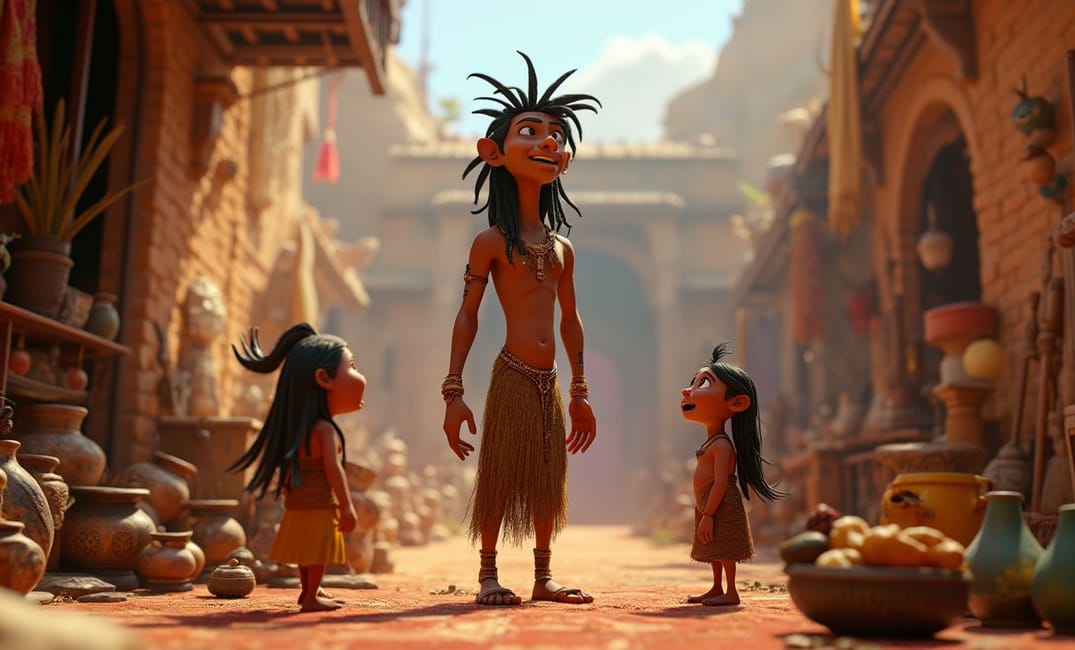Introduction: Echoes of Ancestral Voices
Long before the written word, oral traditions served as the indispensable lifeline for preserving history, culture, values, and shared wisdom. Oral storytelling, music, and theater played critical roles in transmitting knowledge across generations, binding communities together through shared narratives. This entry delves into the intricate tapestry of oral traditions, highlighting their role in shaping human societies, their enduring legacy in contemporary culture, and their adaptability in the digital age.
The Heartbeat of Oral Culture
Early Societies and the Power of the Spoken Word
- Ancestral Storytellers and Memory-Keepers: In prehistoric communities, storytellers were revered as keepers of collective memory, passing down essential knowledge about survival, morality, and identity. These intangible heritages included fables, myths, and genealogies, ensuring cultural continuity even amidst transient times.
- Rituals and Ceremonies: Oral traditions were often woven into community rituals and ceremonies, from initiation rites to seasonal festivals. Through rhythmic chants, songs, and dances, crucial lessons and values were embodied in ways that were both entertaining and instructive.
Linguistic Diversity and Oral Linguistics
- Safeguarding Languages: Oral traditions served as bastions of linguistic diversity, preserving languages within narratives that expressed community identity and worldview. As linguistic societies evolved, these oral legacies provided bridges across cultural and generational divides.
- Phonics and Mnemonics: The complexity of oral traditions is underscored by their mnemonic devices, enabling the accurate recall of epic tales, historical events, and moral teachings. Rhyming schemes, repetitive structures, and alliteration served as tools to aid memory and engagement.
The Cultural Kaleidoscope of Oral Traditions
Narratives and Identity
- Myths and Legends: Myths and legends form the bedrock of human storytelling, crafting captivating narratives that explain natural phenomena, cosmological origins, and heroic archetypes. Cultures around the world, from the Greek myths of Hercules to the Hindu epics of the Ramayana, express universal truths and cultural specificities through rich oral traditions.
- Folklore and Morality Tales: Folktales carry moral lessons and ethical paradigms, imparting wisdom relevant to daily life. Characters like Anansi the spider from African folklore illustrate the virtues of wit and cunning, while the Aesop’s fables end with moral reflections that resonate universally.
Preservation and Adaptation
- The Role of Griots and Bards: Griots in West Africa and bards in Europe exemplify the venerated roles of oral historians. These figures embody the living libraries of their cultures, continuously adapting stories to contemporary contexts while preserving core narratives.
- Theatrical and Musical Expressions: Oral traditions are not confined to spoken words; they find manifestation in theater, opera, and musical performances. Indigenous groups use traditional music and dance as platforms to retell ancestral stories and reinforce cultural identities amid external influences.
The Impact of Transition to Written Traditions
The Shift to Literacy
- From Orality to Textuality: The advent of writing technologies marked a significant transformation in how societies preserved and transmitted knowledge. While written language introduced the permanence of records, it also led to the diminishing role of oral-only societies, reshaping the dynamics of cultural transmission.
- Literary and Artistic Synthesis: Cultures synthesized oral narratives into literary classics, incorporating written accounts of oral epics such as the Mahabharata and Homer’s Iliad. This transition preserved the essence of oral culture while embracing textual longevity and reproducibility.
Oral Traditions in Literature and Media
- Orality's Influence on Modern Storytelling: Oral traditions continue to inform and inspire modern literature, cinema, and digital media. Contemporary storytelling, whether within novels or films, often incorporates oral narrative techniques like dialogue-driven plots, character arcs, and moral resolutions.
- Media Evolution and Accessibility: The technological revolution has democratized access to storytelling. Platforms like podcasts and audiobooks echo the oral tradition's original accessibility, reviving the auditory connection while embracing modern-day technology.
Oral Traditions in the Digital Age
Digital Revival and Preservation
- Digitization of Oral Heritage: The digital era opens new pathways for archiving and reviving oral heritages. Digital repositories, recordings, and transcriptions preserve endangered languages and oral histories for future generations, fostering a global appreciation for diverse cultures.
- Interactive Storytelling and Virtual Worlds: Interactive platforms and virtual reality experiences propose innovative approaches to immersing audiences in narratives. These forms extend the ancient art of storytelling into expansive realms, engaging users as active participants in unfolding tales.
Global Resonance and Cultural Exchange
- Cross-Cultural Storytelling: Digital media facilitates cross-cultural exchanges, allowing diverse oral traditions to traverse geographical boundaries and find resonance with global audiences. Collaborations between storytellers enrich narrative diversity and promote cultural appreciation.
- Oral Traditions as Collective Memory: In a polyphonic digital landscape, oral traditions act as vessels of collective memory, offering perspectives that reflect the richness of human history. This cultural exchange reinforces empathy, understanding, and cooperation among global citizens.
Conclusion: Perpetuating the Tapestry of Oral Traditions
The rich legacy of oral traditions continues to guide humanity's quest for connection, meaning, and creativity. As guardians of ancestral wisdom and educators of new generations, these age-old narratives inspire the preservation of collective identities while adapting to new cultural landscapes. In the ever-advancing digital age, oral traditions serve not only as cultural anchors but also as dynamic forces shaping and enriching the tapestry of contemporary global narratives.
"Oral traditions whisper the echoes of our ancestors, nurturing the roots of our cultural identity—an eternal chain where past voices illuminate paths toward collective future discovery."
IDENTITY, VALUES, LANGUAGE, ORAL TRADITIONS, FOLKLORE, HISTORY, STORYTELLING, DIGITAL AGE, CULTURE

